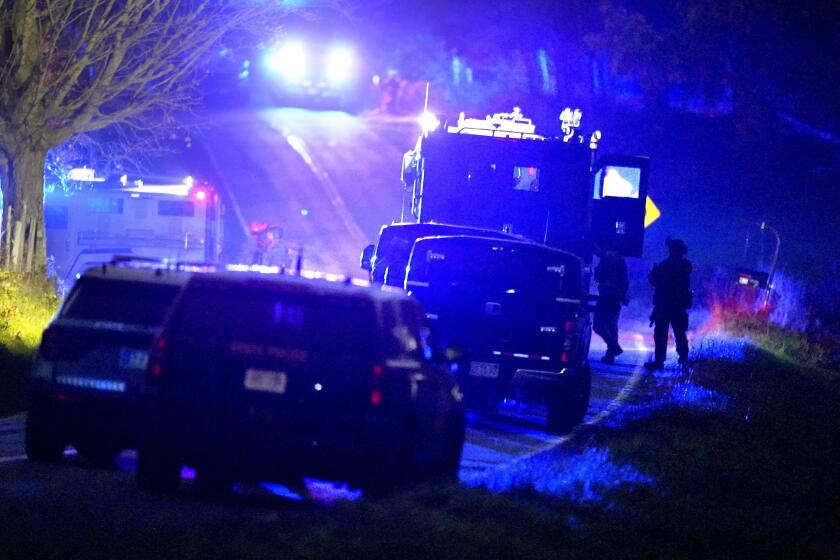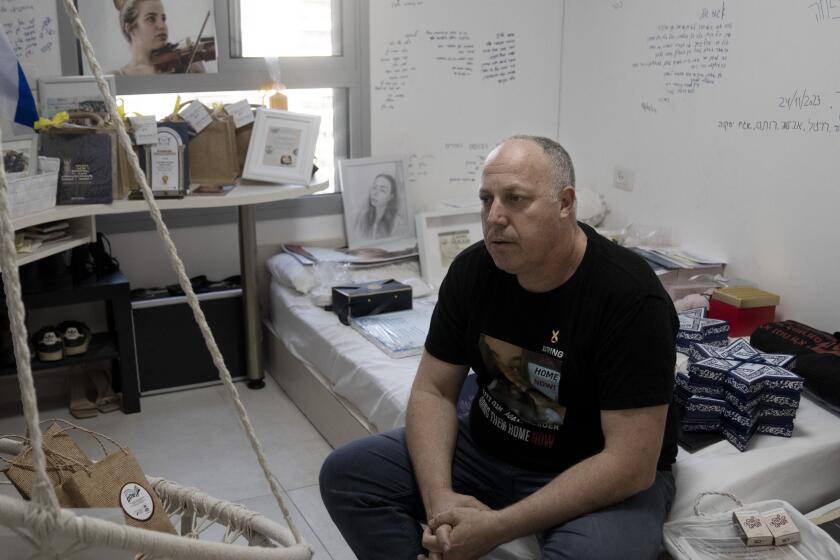Biden strikes a conciliatory global note
Vice President Joe Biden, in a much-anticipated policy speech from the Obama administration, outlined what he called a “renewal project” to connect with old friends and then pressured the listening nations for help with the challenges of security, climate change and extremism.
Biden took to the international stage Saturday at a packed session of the Munich Security Conference. For much of his speech, Biden focused on burden sharing -- in war, in defusing extremism in troubled countries such as Afghanistan, and in keeping the world safe from nuclear proliferation.
“We’ll engage. We’ll listen. We’ll consult. America needs the world, just as I believe the world needs America,” said Biden, who called on allies to effectively police their shared world. “That requires a common commitment not only to listen and live by the rules, but to enforce the rules when, in fact, they are clearly violated.”
Analysts from across Europe said Biden fulfilled hopes that the Obama White House would set a new tone in trans-Atlantic relations.
Biden bypassed what some analysts said would have been a timely call for more European troops in Afghanistan. The Obama administration is pursuing a “strategic review of our policy in Afghanistan and Pakistan to make sure our goals are clear and that they are achievable,” Biden said. “There’s a lot at stake.”
But, speaking just steps away from French President Nicolas Sarkozy and German Chancellor Angela Merkel, Biden never came close to the no-nonsense words voiced earlier in the day by NATO’s top official, Jaap de Hoop Scheffer.
In a morning panel, De Hoop Scheffer pointedly said European countries needed to contribute more to the military work of the North Atlantic Treaty Organization. And the secretary-general said the U.S. had taken some important first steps of goodwill.
“The Obama administration has already done a lot of what Europeans have asked for -- including announcing the closure of Guantanamo and a serious focus on climate change,” De Hoop Scheffer said. “Europe should also listen. When the United States asks for a serious partner, it does not just want advice, it wants and deserves someone to share the heavy lifting.”
Biden said he represented “an administration that’s determined to set a new tone not only in Washington but in America’s relations around the world.” He asked for help in the transfer of Guantanamo Bay detainees. He reiterated that the administration wanted to talk to Iran -- but made it clear that President Obama wanted the Iranians to end their nuclear program and support for terrorist groups.
“We’ll strive to act preventively, not pre-emptively, to avoid whenever possible, or wherever possible the choice of last resort between the risks of war and the dangers of inaction,” Biden said. “We’ll draw upon all the elements of our power -- military and diplomatic, intelligence and law enforcement, economic and cultural -- to stop crises from occurring before they are in front of us.”
Stephen Szabo of the Transatlantic Academy in Washington, funded by German and U.S. foundations, said Biden offered a “realistic scenario of smart power and diplomacy” but few details.
“I think they are still trying to figure out what to do,” Szabo said of the Obama administration. “But I think the response, which was so positive, shows you how much the Europeans really want to believe the U.S. is back in the game.”
Biden asked Russia to reconsider worsening tensions over NATO expansion and over U.S. plans for a missile shield in Eastern Europe.
He said Russia and NATO had an opportunity to cooperate on the threat of the Taliban and Al Qaeda in Afghanistan. Russia and the United States also had mutual concerns about nuclear proliferation, he said, and they both “have a special obligation to lead the international effort” to reduce nuclear weapons. The two countries disagree at times but can still find common ground, Biden said.
“The United States rejects the notion that NATO’s gain is Russia’s loss, or that Russia’s strength is NATO’s weakness. The last few years have seen a dangerous drift in relations,” Biden said. “It’s time to press the reset button and revisit the many areas where we can and should be working together with Russia.”
--
More to Read
Start your day right
Sign up for Essential California for news, features and recommendations from the L.A. Times and beyond in your inbox six days a week.
You may occasionally receive promotional content from the Los Angeles Times.





